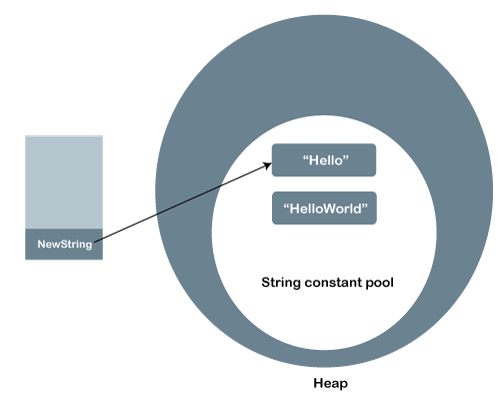Why Are Strings Immutable in Java? Exploring the Design Decisions
Why Are Strings Immutable in Java? Exploring the Design Decisions
Blog Article
Immutable Strings: A Trick Part in Ensuring Information Consistency and Integrity
In the realm of information management, the relevance of unalterable strings can not be overstated. The principle of immutable strings goes beyond simple triviality; it is a linchpin in the complex internet of information administration.
The Concept of Unalterable Strings
Immutable strings, a fundamental concept in programs, describe strings that can not be customized as soon as they are created. Fundamentally, once a string worth is assigned, any procedure that appears to modify the string actually creates a new string. This immutability guarantees data consistency and integrity in applications, as it protects against unanticipated changes to the initial information.
Benefits in Information Consistency

Information consistency is important in numerous elements of software program growth, consisting of data source monitoring, multi-threaded settings, and dispersed systems (Why are strings immutable in Java?). Unalterable strings contribute considerably to achieving this consistency by protecting against information corruption as a result of simultaneous gain access to. In scenarios where numerous procedures or strings interact with the very same information all at once, immutable strings work as a secure versus race problems and synchronization problems
Furthermore, the immutability of strings streamlines debugging and screening processes. With unalterable strings, developers can trust that once a string is established, it will certainly remain unmodified, making it simpler to map the source of errors and making certain that examination situations produce regular results. This dependability in data managing eventually results in extra durable and secure applications.

Applying Immutable Strings
Making sure the immutability of strings needs a thoughtful approach to their execution in software application development. One vital method is to create string courses in a method that prevents alterations when a string item is created. By making strings unalterable, programmers can improve data consistency and integrity in their applications.
To execute unalterable strings efficiently, programmers need to favor developing brand-new string items rather than customizing existing ones. This method guarantees that as soon as a string is designated a value, it can not be transformed. In addition, any procedure that shows up to change the string ought to develop a new string with the desired adjustments as opposed to altering the initial.
Additionally, making use of unalterable strings can streamline concurrency management in multi-threaded atmospheres. Since immutable strings can not be changed after development, they can be securely shared among several threads without the threat of data corruption.
Duty in Dependability Guarantee
In software advancement, the usage of immutable strings plays a crucial role in making certain the dependability of data operations. Immutable strings, when developed, can not be changed, making certain that the data they stand for stays regular throughout the application's implementation. This immutability property offers a degree of guarantee that the information being refined will not be inadvertently changed, resulting in unforeseen outcomes or errors in the system.
By incorporating immutable strings right into software application style, designers can improve the reliability of their applications by lessening the dangers related to mutable data - Why are strings immutable in Java?. Unalterable strings aid in protecting against information corruption or unintentional alterations, which can be specifically important when dealing with delicate info or when data integrity is extremely important
Additionally, using immutable strings streamlines simultaneous handling, as several threads can safely access and share string data without the risk of one string changing the material while another reads it. This facet adds considerably to the general integrity of the software program system, guaranteeing constant and foreseeable habits in data managing operations.
Applications and System Assimilation
The seamless integration of unalterable strings into different applications see here and systems is essential for guaranteeing durable data consistency and dependability across varied technical settings - Why are strings immutable in Java?. Immutable strings play an essential duty in enhancing the integrity of information exchanges and interactions within complex software ecosystems. By integrating unalterable strings into applications, designers can minimize the dangers connected with data meddling, unauthorized adjustments, and unintended changes, thereby strengthening the general protection position of the system
Immutable strings can imp source boost interoperability between disparate systems by providing a standardized format for data representation, making it possible for more efficient information handling and exchange methods across interconnected platforms. By taking on unalterable strings in applications and system assimilation processes, companies can fortify their data infrastructure and support the reliability and consistency of their info possessions.
Conclusion
In conclusion, unalterable strings play an essential role in keeping data consistency and integrity in various applications and system combinations. By ensuring that strings can not be altered as soon as created, the honesty of data is preserved, minimizing the threat of inconsistencies and mistakes. Implementing unalterable strings can substantially improve the dependability of systems, eventually resulting in even more precise and dependable information handling.

Report this page